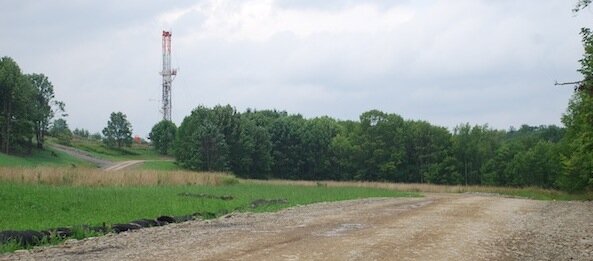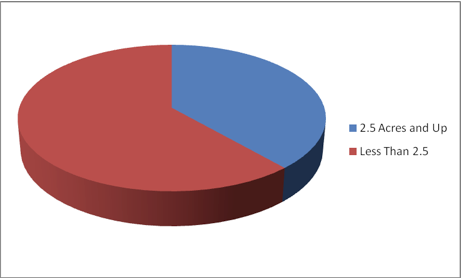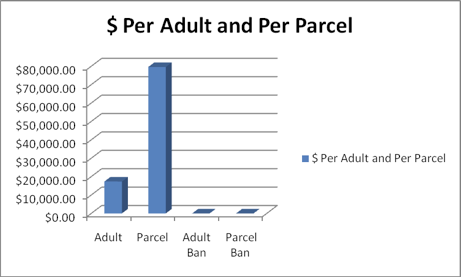Town of Caroline Alerted to Ban Risks
Two letters from Bob Anderson of the town of Caroline, NY:
1.
To The Ithaca Journal…9/28/11
The filing of lawsuits against drilling bans in the towns of Dryden and Middlefield has answered the question of whether towns which enact such laws will be sued.
The fat is in the fire. The validity of local gas drilling bans in New York is before two courts. They, and they alone, can provide definitive answers about the legality and consequences of these bans.
So why would any sensible town seek to join this expensive list of defendants by pushing the enactment of yet another drilling ban, as Caroline seems inclined to do?
How can any Town Council be certain, at this point, that enacting and trying to enforce a drilling ban is sound, responsible, public policy?
Answers will be available, free, shortly.
Let’s, at least, give a yellow light to those who would expose our towns to significant legal cost and potential liabilityto private property owners, by shelving any further movement toward drilling bans, in Caroline, or elsewhere, until these cases are decided, and we can know the cost and effect of what they want us to consider doing.
Bob Anderson
Caroline, NY
2.
304 Blackman Hill Road
Berkshire (Caroline) NY 13736
September 30, 2011
Dear Members of the Caroline Town Council:
Because of the understandably brief opportunity for statements of personal opinion at the upcoming Oct. 4 Council meeting in Brooktondale, I am sending you this written commentary about several new points which have come to the fore as a result of the filing of court challenges to gas drilling bans in Middlefield and Dryden. I have also filed a copy with the Town Clerk.
I consider these lawsuits to be watershed events.
There is no doubt that these suits, one by landowners (Cooperstown Holstein Corporation vs. Town of Middlefield) and one by an aggrieved gas company (Anschutz Inc. vs. Town of Dryden) have put an end to the question of whether towns which enact a drilling ban will be challenged in court.
They have been, and will be again. Caroline must face that reality as it considers enacting its own gas drilling ban.
I hope that you have all read the legal memoranda filed in those cases which lay out, convincingly, the reasons why a local drilling ban cannot be upheld under current New York law. The documents filed in both cases are available on the web site of the West Law Firm, which brought the case in Dryden: www.westfirmlaw.com. Click “Blog” on the opening page menu. The Dryden papers are also available on the Dryden Safe Energy Coalition website: drydensec.org. Both cases are centrally based on statutory citations, legal precedents, and positions already presented to this board at earlier opportunities.
My first point is this. Since the shoe has been dropped concerning litigation, particularly litigation by the deep-pocketed gas companies, why would any town, under principles of plain common sense, volunteer to become defendants in similar lawsuits by considering and enacting its own gas drilling ban at this point in time? Why not sit back and learn, risk and cost free?
The fat is in the fire. The basic validity of any drilling ban, under ECL 23-0303, has been put at issue. Let’s, at least, give a yellow light to those who would expose our town to significant legal costs and potential liability, by shelving any move toward a drilling ban, in Caroline, until the current cases are decided. Who could sensibly support any other approach?
With those suits pending, a proclamation that the town board favors a ban, and will proceed with the development ofone, is a hasty, and possibly expensive, path. All of the key issues are now before two New York courts. They, and they alone, can provide definitive answers about the status and consequences of local gas drilling bans in this state. A firm basis of support for any drilling ban cannot be derived, presently, by having partisan lawyers guessing about possible outcomes in these cases, or, worse yet, urging that we ignore the existence of these cases, and move ahead, regardless of their results. How could that lead toanything except a premature, unreliable, peril ridden recommendation?
Said more specifically, is anyone on our Town Council prepared to say that they are certain that it is good, responsible, public policy for Caroline to endorse immediate movement toward enacting a gas drilling ban, no matter what the result in either of these cases may be, or what rules of law the courts establish when deciding them, and no matter what potential liability might arise from such action?
That is exactly what ROUSE is asking you to do.
My other point is this….
The filing of a lawsuit by a gas company is a very significant event. It shows that gas companies are willing to sue, now, to protect their rights. Towns can no longer hope for their continuing passivity. But, more significantly, the entry of the gas companies introduces a party which has well defined rights which, if unlawfully abrogated under constitutional principles, could result in significant damages being awarded to them, at the expense of the towns which impose drilling bans.
As we all know, litigation of the validity of a drilling ban is not the whole story. If the ban is invalidated, nothing more need be done by its opponents. It is no longer of any effect. But, if upheld, litigation would then move on to the question of whether the validated ban resulted in a “taking” of property, under the fifth amendment to the US Constitution, and, if so, what the “just compensation” for that taking should be.
Much has been made about the difficulty which landowners seeking damages might have in proving that a “taking” had occurred as a result of a drilling ban. With the ban in place, they would still own their land and be able to use it for all of the purposes which existed before the ban, except for the right to sell certain mineral rights. Some have used that argument to support the idea that enactment of a ban is “risk-free” for a town. That may have been right, maybe wrong.
However, now that gas companies have entered the litigation picture, that issue has substantially changed.
Under a validated drilling ban, the situation of a gas drilling company which has purchased substantial drilling rights in a town is very different from that of landowners. The gas company will lose 100% of the value of its property rights directly as a result of the ban.
No drilling…no rights!
Proving and putting a value on those rights would simply be a matter of reading the leases and adding up what the company paid for them. Thus,a judicial finding that a “taking” has occurred is much more likely, and establishing a value for it is far easier, with respect to gas companies, than it may be with landowners. Without regard to the outcome concerning landowner rights, an award of damages to gas companies, against the town, as just compensation for a “taking” of their private property rights, looms, menacingly and realistically, if a local ban is validated.
Anschutz, the gas company which has brought the Dryden case, has stated, in its filings, that it has spent about $4-$5 million for drilling rights in Dryden. If the Dryden drilling ban is upheld, do you think that Anschutz will hesitate to try to get its money back?
Anschutz is also a leaseholder in Caroline. And there are others. Does Caroline want to be on the hook for the cost of defending such suits, and, very possibly, having to pay for the intended result of its enactment of a drilling ban by being required to reimburse all of the lease payments which have been made by gas companies in our town? Where would that kind of money come from?
Further, has anyone spoken to the Town insurer about liability coverage for such a result? This would not be an unforeseen, unintended, side-effect of a poorly worded enactment which the board did not recognize. Taking away the ability of the gas companies to exercise their property rights would be the specific, targeted intention of a gas drilling ban. Would any insurer cover claims for liability to those gas companies…or any other property owner… if a court awarded them, when they were based on the Town’s openly intended actions?
Thanks for thinking about these points.
Robert N. Anderson
- Log in to post comments





